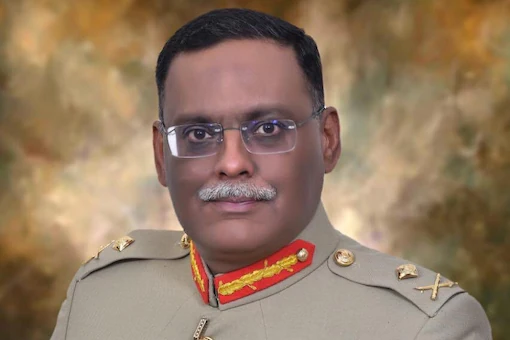
- He was formerly the GHQ's adjutant-general. From 2017 to 2018, he served as the 10 Infantry Division's commanding major-general and was based in Lahore.
- In that position, he had the chance to communicate with foreign intelligence services on behalf of the ISI, according to Dawn.
It will soon be time for the Pakistani government to make one of the most difficult decisions of its term: choosing the person who will lead the nation’s army moving forward, according to the media.
It will soon be time for the Pakistani government to make one of the most difficult decisions of its term: choosing the person who will lead the nation’s army moving forward, according to the media.
According to a senior Pakistan Muslim League-Nawaz (PML-N) politician, Shehbaz Sharif could start talking about the appointment by the end of August and possibly make a decision by the middle of September, according to Dawn news.
Lt-Gen Sahir Shamshad Mirza, one of the four candidates from the same batch, is the most senior member of the present cohort.
According to a military insider who reviewed his resume, he is the undisputed front-runner for any of the two positions of COAS and CJCSC, Dawn said.
He is a native of the Sindh Regiment, which is also where Gen. Nadeem Raza, the departing CJCSC, comes from. Lt. Gen. Mirza has a distinguished Army career, especially over the last seven years in high command roles.
During the final two years of Gen. Raheel Sharif’s administration, he rose to prominence as the director-general of military operations (DGMO). He served in that capacity as a member of the General Headquarters’ (GHQ) core team under Gen Raheel Sharif, which oversaw the military campaign against the Tehreek-i-Taliban Pakistan (TTP) and other terrorists in North Waziristan.
It is customary for the GHQ to submit the Ministry of Defense a list of the four to five senior-most lieutenant-generals, together with copies of their personnel files, so that the prime minister can select the one he believes is best suitable for the position.
Five of the 10 Army commanders the nation has had since 1972 were chosen during successive terms as prime minister by the incumbent’s older brother, Nawaz Sharif. The elder Sharif received a lot of flak for selecting officers who he considered to be “apna banda” (his man). Ironically, he didn’t have a great experience at any of the appointments.
The Sharifs apparently feel like they will never completely get it right as a result of the experience. According to certain PML-N leaders, they have so essentially opted to appoint based only on seniority rather than giving in to the desire to identify the “perfect” candidate, Dawn said.
Then, one party leader added, “no matter how things turn up, we will at least be satisfied that no personal choices were involved.”
Another faction of the party, however, believes Shehbaz Sharif might just follow the incumbent leader’s recommendations.
In the final week of November, Gen. Qamar Javed Bajwa, the COAS, is scheduled to step down. The appointment of the army head is for a period of three years, however following some political commotion in 2019, Gen. Bajwa was awarded an additional three-year tenure.
The Supreme Court later required legislation on the re-appointment of the services heads, according to Dawn. The former prime Imran Khan had granted him a delay in August.
The Prime Minister was given power to prolong the terms of services chiefs when Parliament complied in January 2020. The age at which a service head must retire, however, was set by the statute at 64.
Therefore, Gen. Bajwa, who is still 61 years old, is qualified for reelection. This technicality had raised the possibility that the incumbent would be interested in or looking for another extension. However, a military insider claims that Gen. Bajwa has informed those close to him that he would retire in November. The head is indeed resigning, according to Inter-Services Public Relations.
Not all four-star positions will be vacated in November, including the army chief’s. Gen. Nadeem Raza, the chairman of the Joint Chiefs of Staff Committee (CJCSC), would also be retiring at the same time.
At the time of Gen. Bajwa’s retirement, four of the six senior lieutenant-generals were from the same batch, which is interesting.
Lt-Gen Asim Munir will be the person with the most experience when it comes time to choose the new CJCSC and COAS. Even though he received a two-star general promotion in September 2018, he didn’t take over until two months later. Thus, on November 27, when the current CJCSC and COAS will be taking off their army uniforms, his four-year term as Lt-Gen would come to an end. Gen. Bajwa will decide if his name should be included, and the prime minister will make the ultimate choice, since the suggestions and decisions for the appointment of the two four-star generals will be made a little sooner.
Among the current brass, Lt. Gen. Azhar Abbas has the most experience in Indian relations. He currently serves as the chief of general staff (CGS), effectively leading the army and having direct control over the intelligence and operations directorates at GHQ, according to Dawn.
Prior to that, he oversaw the politically significant and Rawalpindi-based X Corps, demonstrating the current army chief’s entire confidence in him. It was Lt-Gen Abbas’ responsibility to maintain adherence to the 2003 ceasefire agreement along the LOC, which the Indian and Pakistani armies had agreed to while he was commander of the X Corps.
Lt. Gen. Nauman Mehmood, a member of the Baloch Regiment, serves as the National Defence University’s president at the moment. He has also had a lot of experience as the head instructor at the Quetta Command and Staff College. He has been in charge of a North Waziristan-based infantry division. From then, he was appointed director-general (Analysis) at the ISI, where he played a major part in analysing foreign policy from the standpoint of national security. In that position, he had the chance to communicate with foreign intelligence services on behalf of the ISI, according to Dawn.
He was the centre of a dispute between Imran Khan and the COAS during the final stages of his tenure as head of the ISI since the latter had chosen to post him as commander of the Peshawar Corps and the former was unwilling to remove him. Finally, he was transferred to the Bahawalpur Corps after serving less than a year in Peshawar, where he had been stationed.
According to certain political analysts, the PML-N leadership may find it challenging, if not impossible, to consider him for the position of the incoming COAS given the prominence of his previous employment as the head of the ISI under the previous administration, according to Dawn.
He was formerly the GHQ’s adjutant-general. From 2017 to 2018, he served as the 10 Infantry Division’s commanding major-general and was based in Lahore. He has extensive experience in both GHQ and command roles, having also held the position of director-general Staff Duties at the COAS Secretariat. He served as President Asif Zardari’s military secretary from 2011 to 2013 prior to that. According to Dawn, his professional path has put him in close proximity to the current political decision-makers.

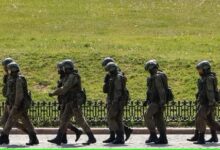
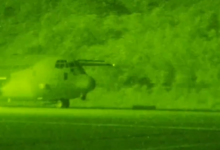
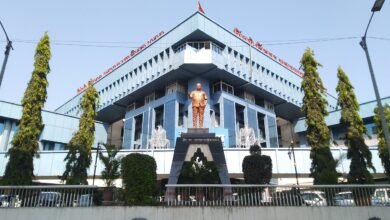
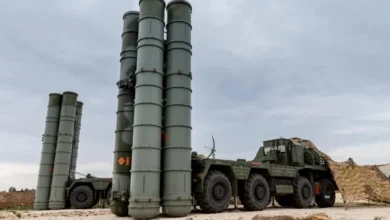
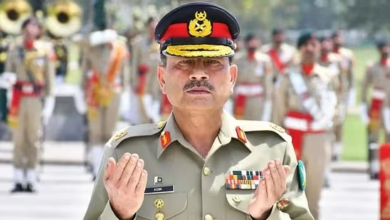
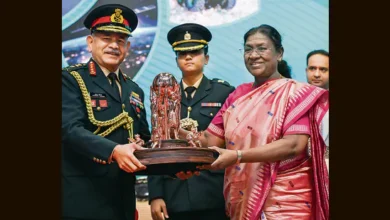
Facebook Comments